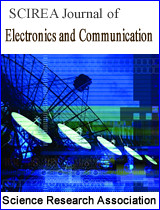Trajectory Control of a Variable Loaded Servo System by using Fuzzy Iterative Learning PID Control
DOI: 380 Downloads 4147 Views
Author(s)
Abstract
In this study, trajectory control of the Variable Loaded Servo (VLS) system is performed by using a Fuzzy Logic based Iterative Learning Control (ILC) method. In the study, a Iterative Learning PID (IL-PID) Controller is used as the iterative learning control structure. Also, a fuzzy adjustment mechanism has been added to the control system for specify the initial parameter of the IL-PID controller. So, with combining the fuzzy logic based parameter adjustment mechanism and the IL-PID controller, Fuzzy Iterative Learning PID (Fuzzy IL-PID) controller is designed to improving the system performance. In the designed system, thanks to the fuzzy adjustment mechanism, the IL-PID controller parameters such as Kp, Ki, and Kd values are automatically adjusted to the appropriate values initially. To illustrate the effectiveness of the proposed fuzzy IL-PID controller, trajectory control of the variable loaded servo system was performed by using both Fuzzy PID and Fuzzy IL-PID control methods under the same conditions separately, and the obtained results were compared. It is seen from the results, the proposed Fuzzy IL-PID control method is to better compensate the system effect as time varying loads and has reduced the steady-state error more than other method in iterations progresses.
Keywords
Fuzzy PID control, Fuzzy IL-PID control, Trajectory control, Variable loaded servo system
Cite this paper
Omer Aydogdu, Mehmet Latif Levent,
Trajectory Control of a Variable Loaded Servo System by using Fuzzy Iterative Learning PID Control
, SCIREA Journal of Electrics, Communication.
Volume 1, Issue 2, December 2016 | PP. 85-98.
References
| [ 1 ] | Baek, S. M., Kuc, T. Y. “An adaptif PID learning Control of DC motors,” IEEE International Conference on Computational Cybernetics and Simulation, Orlando, FL, 1997, vol. 3, pp. 2877-2882. DOI: 10.1109/ICSMC.1997.635431 |
| [ 2 ] | Zadeh, L. A. “Outline of a new approach to the analysis of complex systems and decision processes.” IEEE trans. on systems, Man and Cybernatics, vol. 3, no. 1, pp.28-44, 1973. |
| [ 3 ] | Elshazly, O., El-Bardini, M. “Development of self-tuning fuzzy iterative learning control for controlling a mechatronic system.” International Journal of Information and Electronics Engineering, vol. 2, no. 4, pp. 565-569, July, 2012. DOI: 10.7763/IJIEE.2012.V2.162 |
| [ 4 ] | Pok, Y. M. Liew, K. H. and Xu, J. X. “Fuzzy PD iterative learning control algorithm for improving tracking accuracy,” IEEE International Conference on Systems, Man and Cybernatics, San Diego, CA, 1998, vol. 2, pp. 1603-1608. DOI: 10.1109/ICSMC.1998.728117. |
| [ 5 ] | Wei, J. “Adaptive iterative learning control for a class of nonlinear time-varying systems with unknown delays and input dead-zone.” IEEE/CAA Journal of Automatica Sinica, vol. 1, no. 3, pp. 302-314, July, 2014. DOI: 10.1109/JAS.2014.7004688. |
| [ 6 ] | Hu, C. R., Lin, S. S. Sheng, H. Z. “A new discrete-time adaptive ILC for nonlinear systems with time-varying parametric uncertainties.” Acta Automatica Sinica, vol. 34, no. 7, pp. 805-808. 2008 (in Chinese). DOI: 10.3724/SP.J.1004.2008.00805. |
| [ 7 ] | Alkan, O., Aydogdu, O. “Fuzzy model reference learning control of a time-varying rotary servo systems,” Proceedings of Second International Conference on Informatics, Çanakkale, (ICI'2011), 2011, pp. 1-7. |
| [ 8 ] | Kasnakoglu, C., “Modeling and control of flow problems by adaptation-based linear parameter varying models.” Turkish Journal of Electrical Engineering & Computer Sciences, vol. 18, 2010. DOI:10.3906/elk-0906-5. |
| [ 9 ] | Fadil, M.A., “PID Controller for Micro-Unmanned Air Vehicle (Micro-UAV).” BS thesis, Mekanikal-Aeronautik, Universiti Teknologi, Kuala Lumpur, Malaysia, 2012. |
| [ 10 ] | Precup, R. E., Preitl, S., Petriu, E. M., Tar, J. K. and Fodor, J. “Iterative learning-based fuzzy control system,” in IEEE International Workshop on Robotic and Sensors Environments, Ottawa, Canada, 2008, pp. 25-28. |
| [ 11 ] | Dotoli, M., Maione, B. and Turchiano, B. “Fuzzy-Supervised PID Control: Experimental Results,” in 1st European Symposium on Intelligent Technologies, Tenerife, Spain, EUNITE 2001, pp. 31–35. |
| [ 12 ] | Feng, G. “A Survey on Analysis and Design of Model-Based Fuzzy Control Systems.” IEEE Trans. on Fuzzy Sys., vol. 14, no. 5, pp. 676–697, October, 2006. DOI: 10.1109/TFUZZ.2006.883415 |
| [ 13 ] | Lee, C. C. “Fuzzy Logic in Control Systems: Fuzzy Logic Controller-Part I.” IEEE Transactions on Systems, Man and Cybernetics, vol. 20, no. 2, pp. 404–418, March/April, 1990. |
| [ 14 ] | Ahn, H. S., Chen, Y. Q. and Moore, K. L. “Iterative Learning Control: Brief Survey and Categorization.” IEEE Transactions On Systems, Man, And Cybernetics, Part C: Applications And Reviews, vol. 37, no. 6, pp 1099-1121, November, 2007. DOI: 10.1109/TSMCC.2007.905759 |
| [ 15 ] | Arimoto, S., Kawamura, S., and Miyazaki, F. “Bettering operation of dynamic systems by learning: A new control theory for servomechanism and mechatronics systems,” The 23rd IEEE Conference on Decision and Control, Las Vegas, NV, 1984, pp. 1064-1063. DOI: 10.1109/CDC.1984.272176 |
| [ 16 ] | Fadil, M. A., Jalil N. A., and Mat Darus, I. Z. “Intelligent PID controller using iterative learning algorithm for active vibration controller of flexible beam,” IEEE Symposium on Computers & Informatics, Langkawi, ISCI, 2013, pp. 80-85. DOI: 10.1109/ISCI.2013.6612380. |

